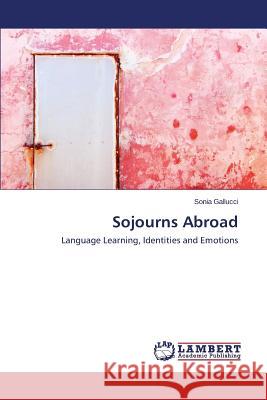Sojourns Abroad » książka
Sojourns Abroad
ISBN-13: 9783659554537 / Angielski / Miękka / 2014 / 296 str.
This book introduces a new perspective of language learning and emotions to complement recent studies that have foregrounded the processes involved in navigating cultural difference and the negotiation of second language identities. The volume presents three detailed case studies of the lived experiences of language learning during a period of study abroad. All three of the language learners in these case studies were students of Italian in universities in the UK. The border crossing undertaken by these students is part of the wider transnational mobility ushered in by supra-national organisations such as the European Union. The personal challenges and consequences of such border crossing for individuals are charted in this book in order to provide insights into the ways in which students are positioned in different institutional and life world settings, as they endeavour to construct second language learner identities, and into the agentive ways in which they respond to this positioning that can shape their desire to invest in the learning of a particular second language.
This book introduces a new perspective of language learning and emotions to complement recent studies that have foregrounded the processes involved in navigating cultural difference and the negotiation of second language identities. The volume presents three detailed case studies of the lived experiences of language learning during a period of study abroad. All three of the language learners in these case studies were students of Italian in universities in the UK. The border crossing undertaken by these students is part of the wider transnational mobility ushered in by supra-national organisations such as the European Union. The personal challenges and consequences of such border crossing for individuals are charted in this book in order to provide insights into the ways in which students are positioned in different institutional and life world settings, as they endeavour to construct second language learner identities, and into the agentive ways in which they respond to this positioning that can shape their desire to invest in the learning of a particular second language.











